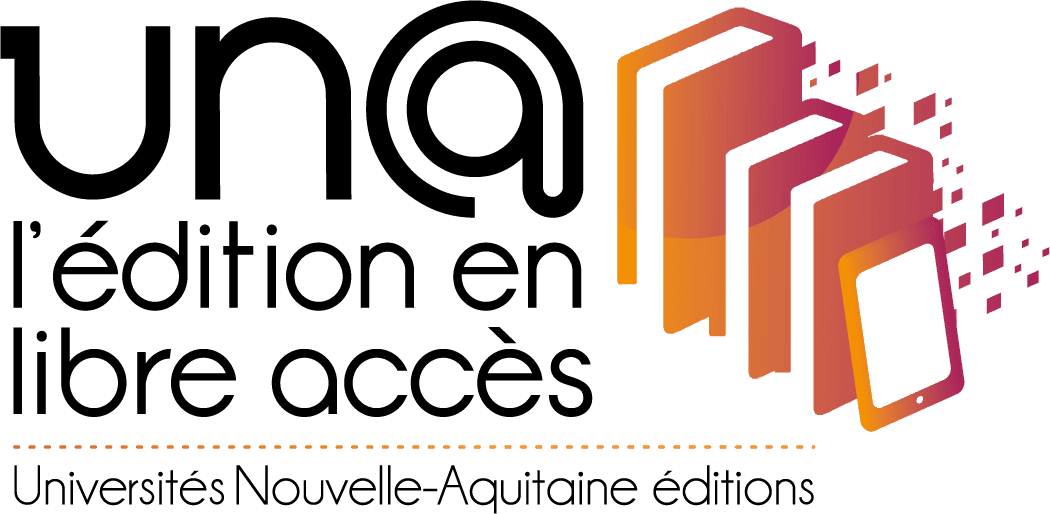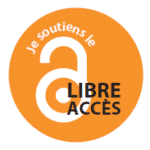UN@ est une plateforme d'édition de livres numériques pour les presses universitaires de Nouvelle-Aquitaine
Auteur : Nathalie André

MSHS – CeRCA – Bâtiment A5
5, rue T. Lefebvre
TSA 21103
86073 POITIERS Cedex 9, France
nathalie.andre@univ-poitiers.fr
0000-0003-0132-3154
5, rue T. Lefebvre
TSA 21103
86073 POITIERS Cedex 9, France
nathalie.andre@univ-poitiers.fr
0000-0003-0132-3154
Nathalie André est enseignant-chercheur au Centre de Recherches sur la Cognition et l’Apprentissage de l’Université de Poitiers. Spécialisée en psychologie de l’exercice et psychologie de la santé, elle développe des travaux pluridisciplinaires centrés sur l’effort, la fatigue et le changement de comportement. Elle publie régulièrement dans des revues nationales et internationales et participe activement à des projets de recherche collaboratifs. Son travail vise à renforcer les liens entre la recherche fondamentale et la recherche appliquée avec un intérêt marqué pour la science avec et pour la société.
Bibliographie sélective
- Baumeister, R., André, N., & Southwick, D. (2025). Forward-looking questions regarding ego depletion and mental fatigue in sport psychology: comment on Englert. Psychology of Sport and Exercise, 102898. https://doi.org/10.1016/j.psychsport.2025.102898
- André, N., Audiffren, M., & Englert, C. (2025). Brain endurance training as a strategy for reducing mental fatigue. Frontiers in Psychology, 16, doi: https://10.3389/fpsyg.2025.1616171
- Peyrachon, R., Richard, C., Gelein, B., Lièvre, A., André, N., Chaory, K., & Rébillard, A. (2025). Rationale and design of an exercise intervention for patients with cancer cachexia : protocol for a one-year follow-up prospective study (2CAPA). BMC Sports Science, Medicine and Rehabilitation, 24, 129. doi: https://10.1186/s13102-025-01173-8
- André, N., Baumeister, R. (2025). Motivation needs cognition but is not all about cognition. Behavioral and Brain Science, 48, e28. doi:10.1017/S0140525X24000529
- Baumeister, R., André, N., Southwick, D., & Tice, D. (2024). Self-control and limited willpower: Current status of ego depletion theory and research. Current Opinion in Psychology, 60:101882. https://doi.org/10.1016/j.copsyc.2024.101882
- Lorcery, A., André, N., Benraïss, A., Pingault, M., Mirabelli, F., Audiffren, M. (2024). Engagement of mental effort in response to cognitive fatigue: A psychophysiological analysis. Psychology of Sport and Exercise, 74:102660. https://doi.org/10.1016/j.psychsport.2024.102660
- André, N., Grousset, M., Audiffren, M. (2024). A behavioral perspective for improving exercise adherence. Sports Medicine Open, 10:56. https://doi.org/10.1186/s40798-024-00714-8
- Baumeister, R. F., & André, N. (2023). Failure of Guilt, Misguided Free Will, and the Potential Benefits of Legitimate Disapproval: The Case for Stigmatizing Addiction. Addiction Research and Theory. https://doi.org/10.1080/16066359.2023.2266370
- Mangin, T., Audiffren, M., & André, N. (2023). Réflexions théoriques et méthodologiques autour du concept de fatigue cognitive. Movement & Sport Sciences – Science & Motricité. https://doi.org/10.1051/sm/2023001
- André, N., & Baumeister, R. F. (2023). Dysfunctional schemas from preadolescence as one major avenue by which meaning has impact on mental health. International Journal of Environmental Research and Public Health, 20, 6225. https://doi.org/10.3390/ijerph20136225
- André, N., & Baumeister, R. F. (2023). Three pathways into chronic lack of energy as a mental health complaint. European Journal of Health Psychology. https://doi.org/10.1027/2512-8442/a000123
- Mangin, T., Audiffren, M., Lorcery, A., Mirabelli, F., Benraiss, A., André, N. (2022). A plausible link between the time-on-task effect and the sequential task effect. Frontiers in Psychology, 13:998393. https://doi.org/10.3389/fpsyg.2022.998393
- André, N., & Laurencelle, L. (2022). La validité psychométrique est d’abord un jugement : une perspective pragmatique. The Quantitative Methods for Psychology, 18, 224-240.
- Baumeister, R., & André, N. (2022). Understanding meaning and its place in human life and psychotherapy. Psyche & Geloof, 33, 46-56.
- Audiffren, M., André, N., & Baumeister, R. F. (2022). Training willpower: reducing costs and valuing effort. Frontiers in Neuroscience: Decision Neuroscience, 16:699817. doi: 10.3389/fnins.2022.699817
- André, N., Gastinger, S., & Rébillard, A. (2021). Chronic fatigue in cancer, brain connectivity and reluctance to engage in physical activity: a mini-review. Frontiers in Oncology, 11:774347. doi: https://10.3389/fonc.2021.774347
- Mangin, T., André, N., Benraïss A., Pageaux, B. & Audiffren, M. (2021). No ego depletion effect without a good control group. Psychology of Sport and Exercise, 57, 102033. https://doi.org/10.1016/j.psychsport.2021.102033
Mots clés
Changement de comportement, Adhésion, Effort, Fatigue, Cancer.
L’activité physique (AP) est aujourd’hui reconnue comme une stratégie thérapeutique non médicamenteuse efficace en oncologie (INCa, 2017 ; INSERM, 2019).


